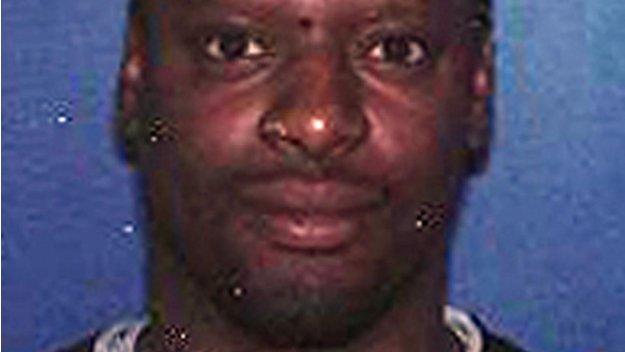Trevor Gray: Wife's battle to clear wrongly jailed detective's name
- Published
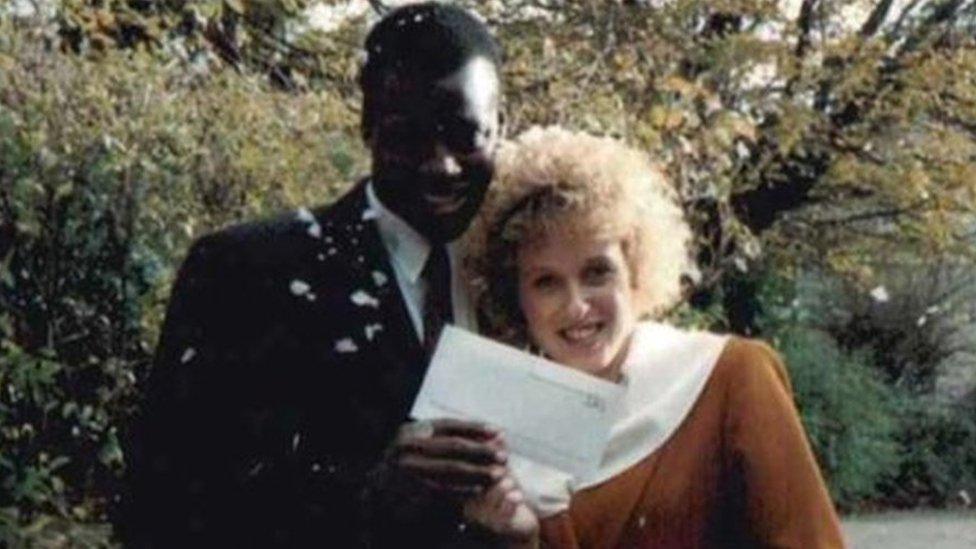
Former detective sergeant Trevor Gray and his wife Alison have spent a total of five years fighting to clear Trevor's name after he was wrongly jailed for rape
A High Court judge has said a police force was wrong not to reinstate a former detective wrongly jailed for raping a woman in 2011. Trevor Gray's wife Alison told BBC News how her family won a five-year, £150,000 battle to clear his name.
Alison Gray still remembers visiting her husband Trevor in prison for the first time.
"He was just a shadow of what he was before," she said. "He had lost a lot of weight and was sat with his knees bouncing up and down like a caged animal."
In 2011, Mr Gray, a serving Nottinghamshire Police detective, was accused of raping a 43-year-old woman at her home.
He and his wife were estranged at the time. He claimed he had had consensual sex with the woman but a jury found him guilty and he was jailed for eight years.
Mrs Gray was no stranger to fighting battles. She had breast cancer in 2004 and again in 2010, leading to two mastectomies. She now believes the strain of this was probably "the catalyst" for the initial breakdown in their marriage.
However, she was still determined to prove his innocence.
"I knew what kind of man he was, morally correct in everything he does," the 50-year-old said.
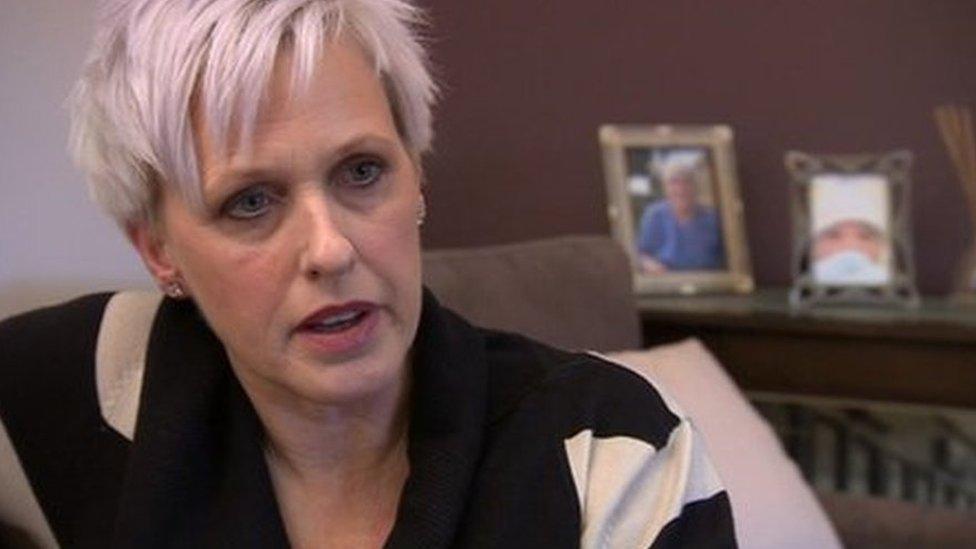
Mrs Gray said she had to sell Mr Gray's possessions on eBay to pay the family's legal bills
"I just knew he wasn't capable of that. Despite our differences, and the fact we'd separated, I knew he wasn't capable of such a crime."
With her husband in prison, she began playing detective herself, while selling her husband's possessions on eBay to pay the legal bills.
"I was going through the case files, picking up the inconsistencies and anomalies and I knew I had to do something - there were so many errors in there," she said.
She discovered a taxi driver mentioned in the files who had not been questioned by police.
He was tracked down and later told jurors at Mr Gray's retrial in 2014 that he saw the woman and Mr Gray kiss and embrace. Mr Gray, 51, was acquitted after a four-day hearing.
Despite his acquittal - and a Police Appeals Tribunal board ruling that Mr Gray could return to work - his employers suspended him in April 2014, a decision later upheld by the same tribunal board.
"They held a disciplinary hearing in which they said - on the balance of probability - they believed the complainant over Trevor," Mrs Gray said.
"Effectively he was being sentenced again on the same point by the police."
Two years on, Mr Gray was granted a judicial review into that dismissal, the result of which was announced in London on Friday.
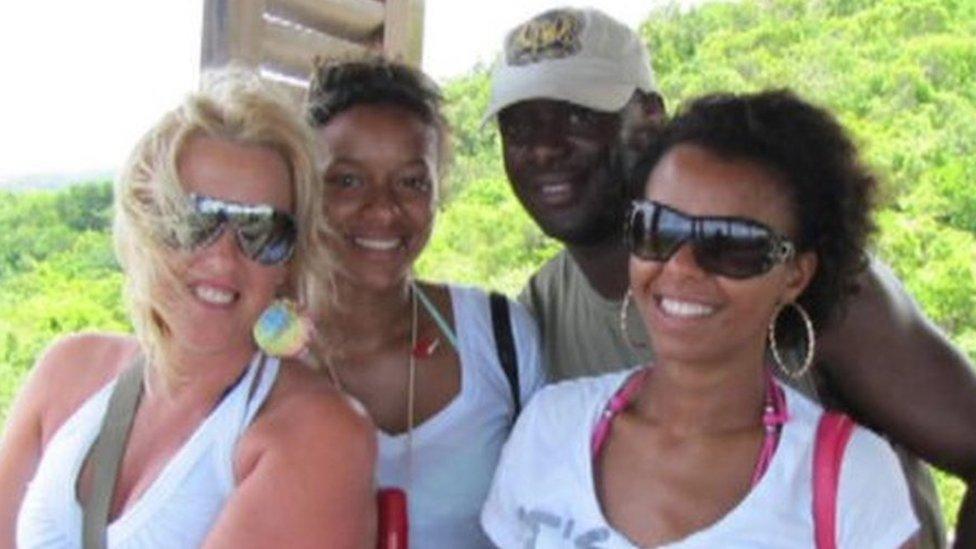
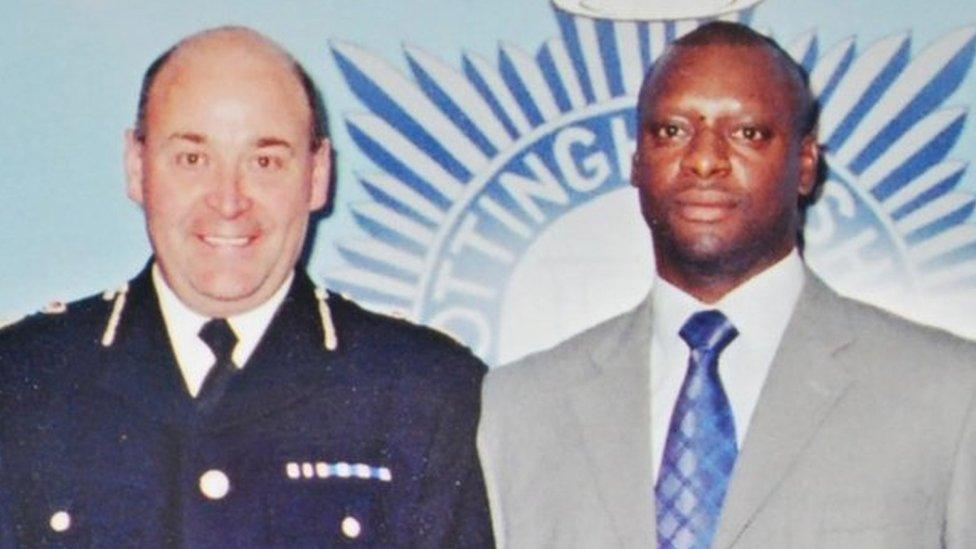
Mr Gray had racked up 25 years of service and a number of awards prior to his dismissal

Trevor Gray case timeline
July 2011: An allegation of rape against Mr Gray is made. He is then suspended by the force
February 2012: Mr Gray pleads not guilty to one count of rape, one count of attempted rape and sexual touching
May 2012: Mr Gray is convicted following a trial at Derby Crown Court and jailed for eight years
July 2013: Mr Gray's wife traces a key witness, whose evidence leads to his conviction being quashed on appeal
February 2014: Mr Gray is unanimously cleared of all charges after a four-day retrial
March 2014: The Independent Police Complaints Commission (IPCC) launch an independent investigation into the force's handling of the case
April 2014: A Police Appeals Tribunal board rules Mr Gray can return to work. That same month, Mr Gray is suspended by the police, a decision later upheld by a tribunal
April 2016: Mr Gray is granted a judicial review into his dismissal by the force
July 2016: A judge quashes the police and tribunals' decision not to reinstate Mr Gray

The judge quashed the force's decision and said it fell "well below the standard" expected in such "important disciplinary proceedings".
The force has now said it is staying Mr Gray's reinstatement pending an application to the Court of Appeal.
Mrs Gray said the saga has taken its toll on the pair - who reconciled months after the first trial - as well as their two daughters Laurie, 25, and Natalie, 23.
"I don't think it will ever leave us," she said. "The scars will be there forever.
"It's taken its toll, particularly on Trevor. He spends a lot of time at the computer researching, he's been through counselling."
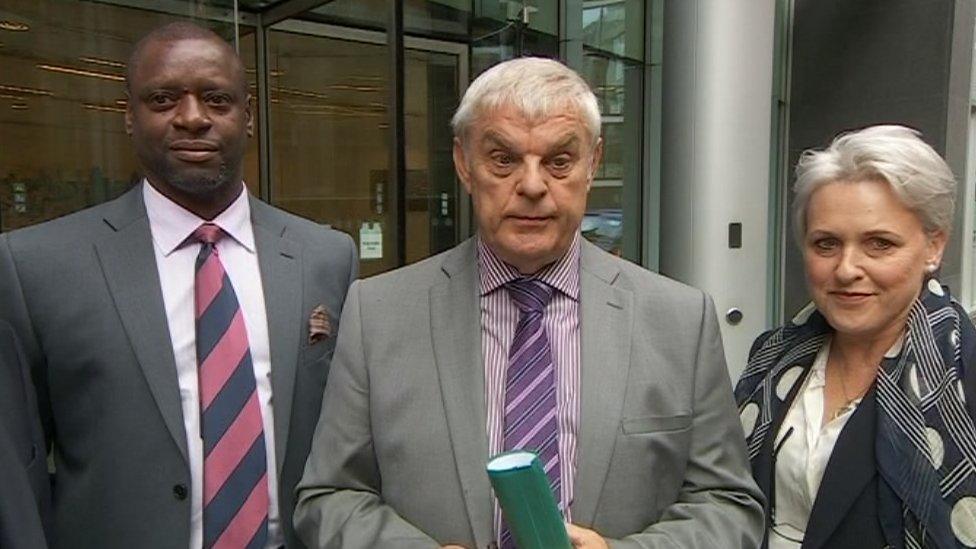
Mr Gray said he was "elated" by the decision of the High Court in London on Friday
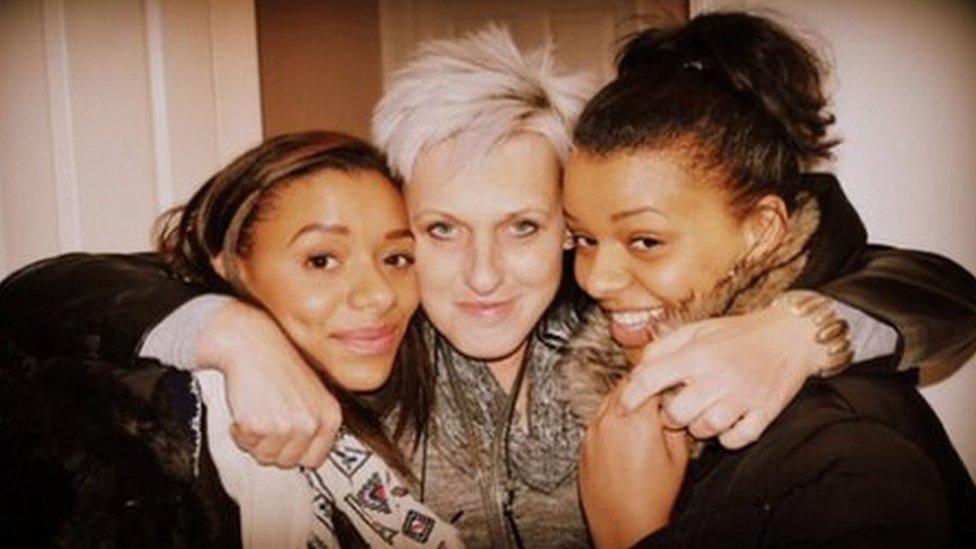
Mrs Gray (centre) has suffered setbacks of her own
The extensive legal fees involved in a case like this have naturally strained the family financially - forcing them to put their house on the market "just in case" and spending £150,000 - much of which they have recouped.
Mrs Gray said she still recalled "going through family members" to try to raise £5,000 in the week of the retrial.

Trevor Gray background
Spent six years in the Army before joining Nottinghamshire Police in 1987
In his role he also worked for the National Crime Squad (NCS) and the National Crime Agency (NCA), as well as the counter terrorism unit covering all of the UK
Won numerous awards and commendations during his 25 years with the force, including a Chief Constable's commendation, a Police Long Service and Good Conduct Medal, and a Queen's Police Jubilee Medal
At the time of his dismissal, his rank was detective sergeant

An IPCC report, seen by the BBC, recommended two senior detectives, who investigated the case, face misconduct proceedings.
But the IPCC and the force later agreed the pair would face no formal sanctions. They were instead "given management action relating to performance development".
The IPCC has now said it is considering releasing the report.
For now, Mrs Gray is sticking to her philosophy of positive thinking.
"[The cancer] wasn't a nice time, but I survived, got through the treatment, then this happened - so I'm ready for a break."
- Published29 July 2016
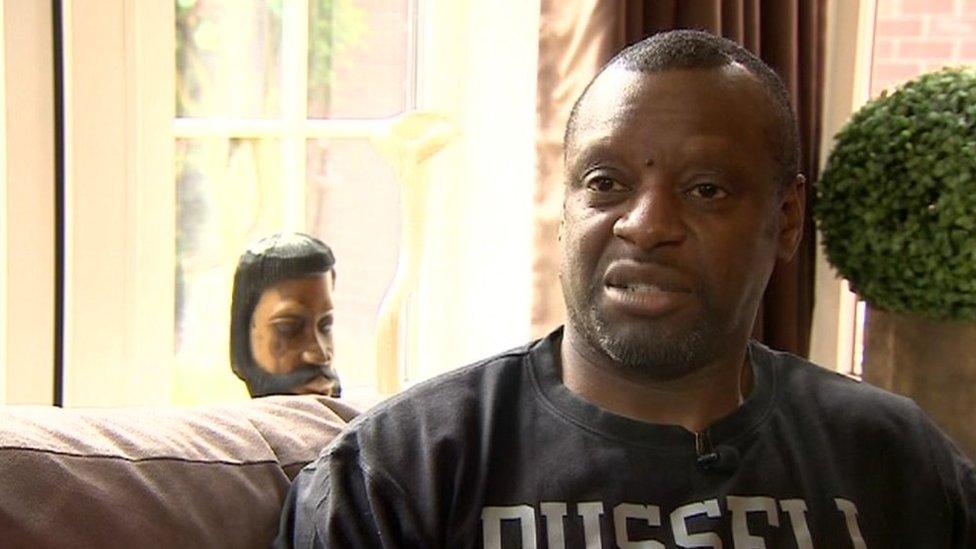
- Published1 April 2016
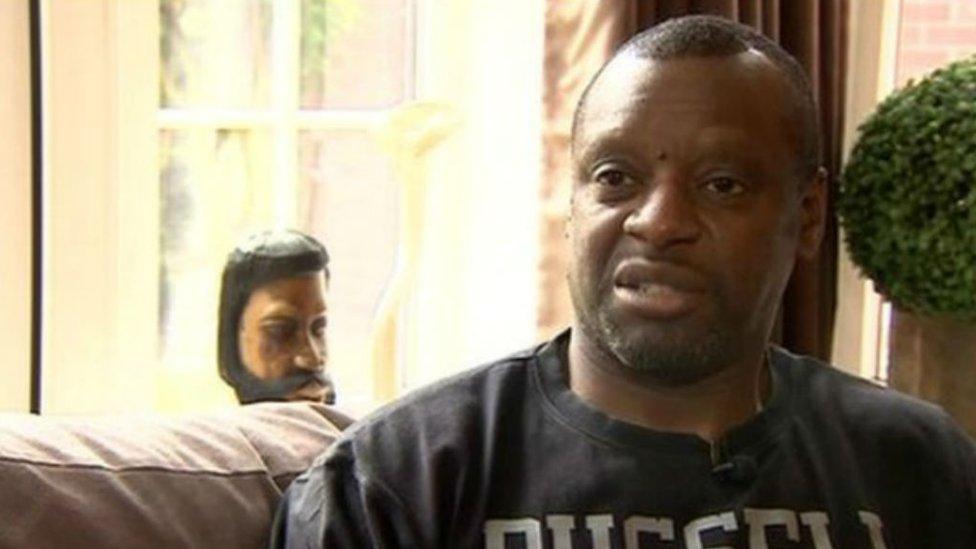
- Published24 April 2014
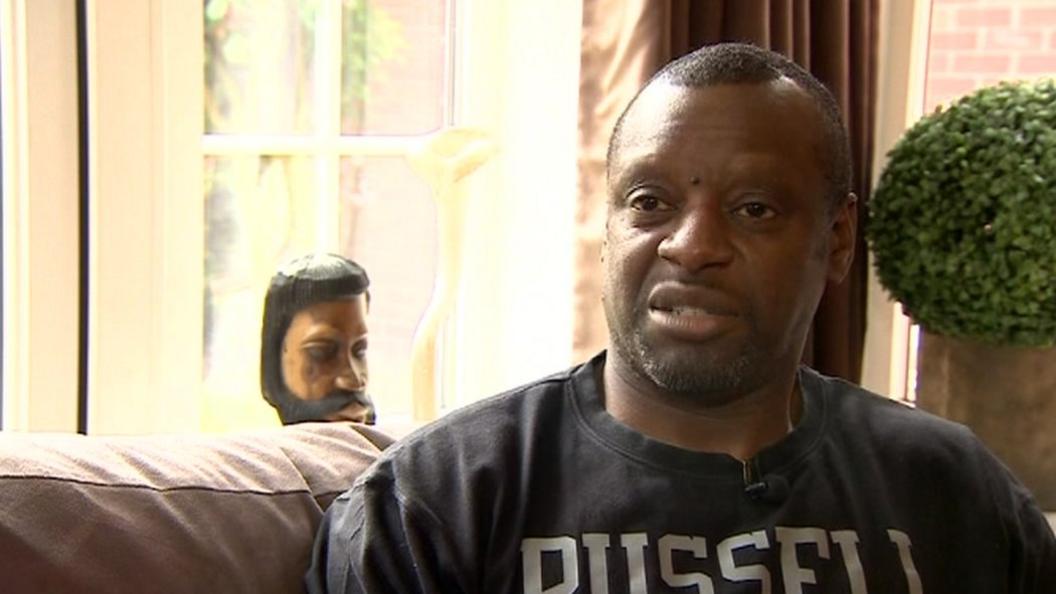
- Published11 April 2014

- Published24 March 2014
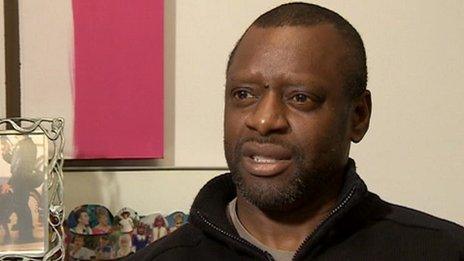
- Published7 February 2014
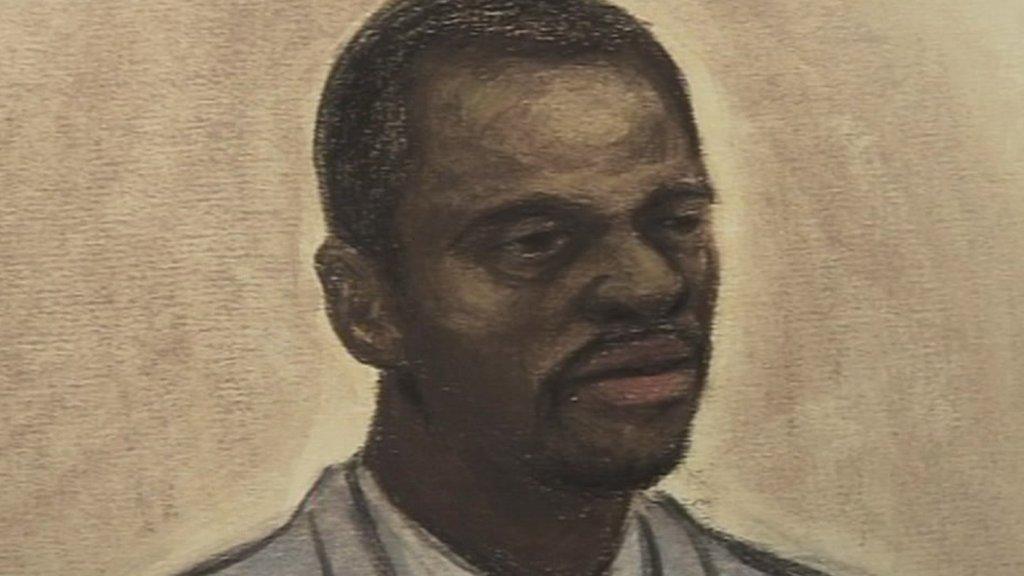
- Published31 May 2012
